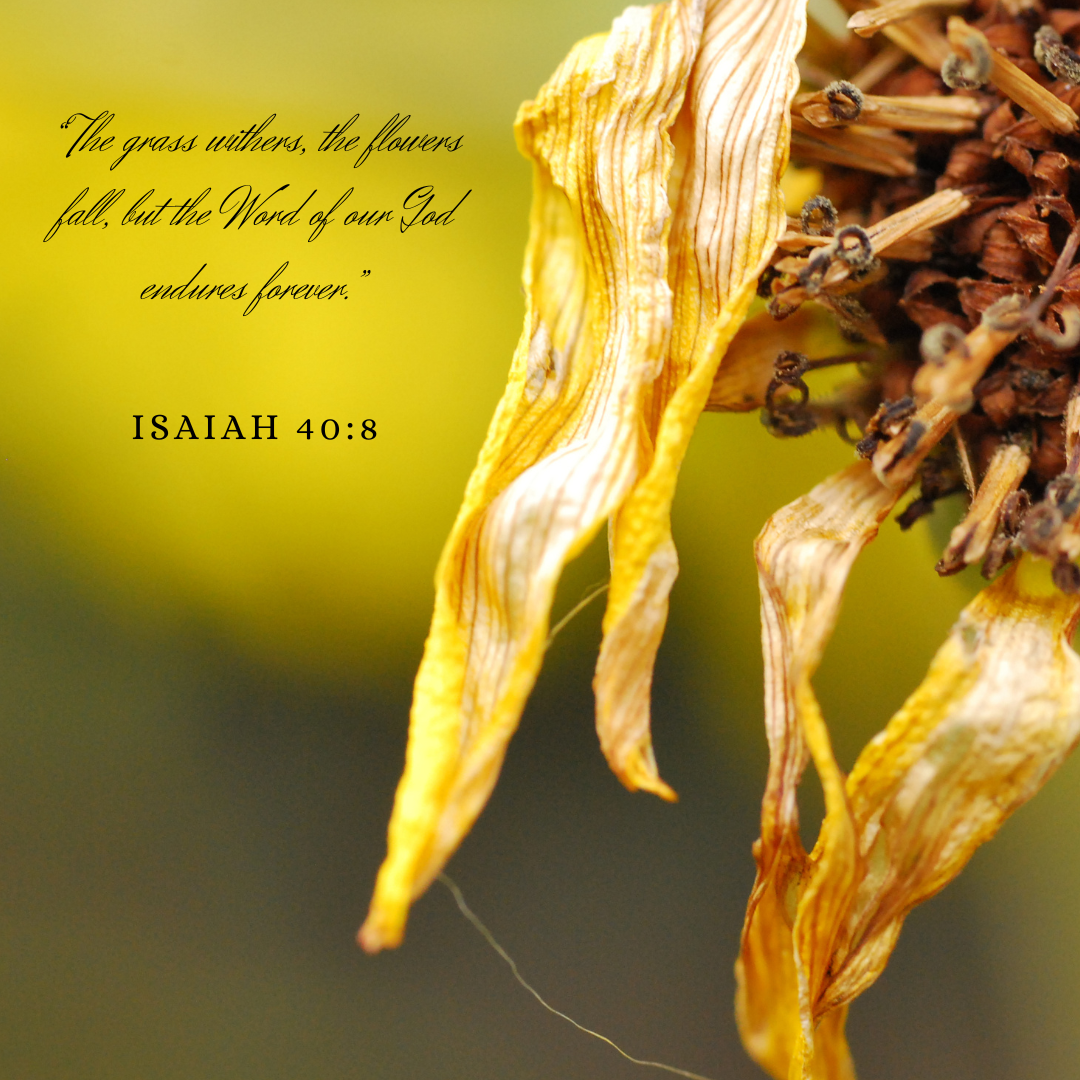Crash-and-Burn Sermon Endings and Questions from Young Parishioners

Ending a sermon well has always been difficult for me. Preaching can be likened to flying an airplane. The introduction is the takeoff. The exposition is the actual flight. The conclusion is the landing. And oh, my, have I had some crash-and-burn landings! Maybe at the top of the list was the time I forgot the lyrics to a song I was going to recite! After fumbling and mumbling, I just finished.
About a year ago, I started ending every sermon the same way. Instead of trying to summon up a perfect illustration or the consummate phrase, I simply quote Isaiah 40:8: “The grass withers, the flowers fall, but the Word of our God endures forever.”
The other day a child in our church asked me, “Why do you end your sermon that way?” I instantly thought, what an incredible “teachable moment:” he is listening!
Well, first of all, to be honest, I stole the idea from a man named David Calhoun, who ended all his church history lectures at Covenant Theological Seminary that way – a concept I found very cool. It may seem lame, but that ending has become a kind of “trademark” sign-off tag.
Another less-than-compelling reason is that, again, it is easier and way less stressful to end with Scripture than trying to find the “exactly right” words every single time.
Now on to a more weighty reason: reciting that verse links our congregation to a timeless liturgy, rather than an emotional and perhaps even manipulative worship “experience.” “Liturgy” may be a word most Evangelicals disdain or are unfamiliar with, but understood rightly, it is a concept we should recover, as it’s nothing more than our formula of how we go about public worship. Through the centuries, the church followed a style that, while rote, was of a more somber character than many expressions of worship today.
But above all other reasons, I close with Isaiah 40:8 because it’s a wonderful way to bind the Word of God to the consciences of our members. It is my way of communicating to our church that the truths I have shared reflect His Word and not mine. My words will fade away. My sermon will probably never be remembered. But the everlasting truths of the gospel found there should never be forgotten. There is a sense of finality when I say that verse now and at times, I can hear people say a gentle amen or a low hmmm. As if to say, I believe what the pastor just said is true.
When that little boy asked me the other day why I end sermons that way, his dad said to him, tell Pastor Seth the verse. The boy repeated it to me verbatim as he has heard me say it many Sundays now.
And I thought to myself, the kids in our church will probably never remember one single sermon I preach. They may never look back and say, on this day, Pastor Seth said this. But the words and message of that verse will be embedded into the conscious memories of all the kids I have the privilege to preach to, along with the fact that their pastor ended every sermon quoting the Bible.
Whether or not your pastor has a tagline to end his sermons, take a few moments at the conclusion of his message to bind the truth of the Word he has shared to your own heart.
Soli Deo Gloria!
More in Blog
April 25, 2024
Part 3: Should Children Have Their Own Service? Developing a Family Culture in Corporate WorshipApril 24, 2024
Part 2: Should Children Have Their Own Worship Service? History and Unintended ConsequencesApril 24, 2024
Part 1: Should Children Have Their Own Worship Service: What Does the Bible Say?